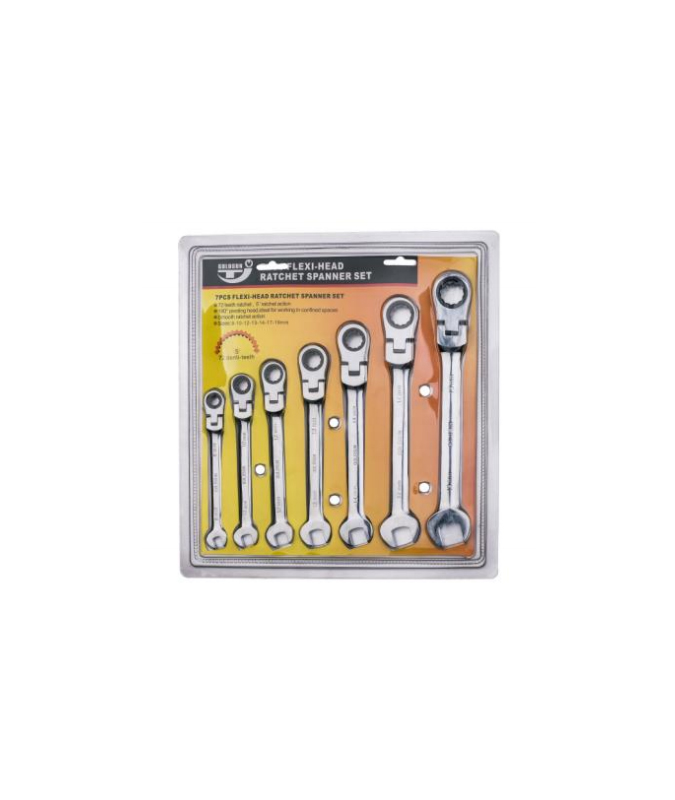

Explosion-proof adjustable wrench is not one of the mos […]
Explosion-proof adjustable wrench is not one of the most sold products among explosion-proof tools. The product quality of explosion-proof adjustable wrenches is consistently discussed in the industry.
A good explosion-proof adjustable wrench uses electrolytic copper as the raw material, and the surface is smooth and flat, and it is formed at one time. Some products of poor quality are made of second-hand copper. After they have been used once, there will be impurities on the one hand, and physical properties will deteriorate. Product quality will also decline. Can tell.
The shape of the explosion-proof adjustable wrench is the same as the ordinary adjustable wrench, the difference lies in its material and performance. 1. The material of the explosion-proof adjustable wrench is aluminum bronze and beryllium bronze. 2. Explosion-proof adjustable wrench is suitable for petroleum, petrochemical, natural gas, pharmaceutical, coal, chemical, smelting, and other flammable and explosive dangerous places. 3. The specifications of explosion-proof adjustable wrenches are: 100, 150, 200, 250, 300, 375, 450, 600mm
Explosion-proof tools are collectively referred to as "safety tools" and "non-sparking tools" internationally, and "explosion-proof tools" in China. The explosion-proof tools produced, sold and circulated in China can be divided into two categories according to their materials: 1. Aluminum-copper alloy (commonly known as aluminum bronze) explosion-proof tools. The specific material is high-purity electrolytic copper as the matrix and appropriate amounts of aluminum, nickel, and manganese. , Iron and other metals to form copper-based alloys. 2. Beryllium bronze alloy (commonly known as beryllium bronze) explosion-proof tools, the specific material is high-purity electrolytic copper as the matrix, adding appropriate amounts of beryllium, nickel and other metals to form a copper-based alloy. The thermal conductivity and electrical conductivity of these two materials are very good. The hardness and wear resistance of aluminum bronze after heat treatment are almost the same as that of beryllium bronze and can reach more than HRC30o. Beryllium bronze has no magnetism and can be used in strong magnetic fields. Explosion-proof tools can also be divided into two categories based on the manufacturing process: 1. Casting process: It is a traditional manufacturing process, which is the international general manufacturing process technology for explosion-proof tools in the 1980s, and it has been used by most domestic explosion-proof tool manufacturers. Advantages of casting process: simple process and low manufacturing cost. Disadvantages: low product density, hardness, tensile strength, and torque, and more pores and trachoma lead to shorter product life. 2. Forging process: The latest international manufacturing process is made by one-time forging with a large press or punch and a high heat-resistant forming die. The advantages of the forging process: it can greatly improve the product density, hardness, tensile strength, and torsion force, basically eliminate pores and trachoma, and make the product mechanical properties and service life about twice as long as the traditional casting process. Disadvantages: large investment in product equipment and molds, resulting in high costs.
Precautions for the use of explosion-proof percussion tools
In the actual operation of hammering tools, it is necessary to remove debris on site and oxides corroded on the working surface to prevent a third party from hitting. According to the above performance and use, it is indicated that aluminum-copper alloy is more suitable for atmospheric equipment and environments with less stringent requirements for explosion-proof conditions (such as gas stations, small oil depots, etc.) during normal use. And the applicability of the performance of beryllium copper alloy explosion-proof tools (such as oil refineries, gas transfer stations, gas production plants, drilling crews, etc.).
www.ratchetspanner.com

Yuyao Golden Sun Tools Co., Ltd.